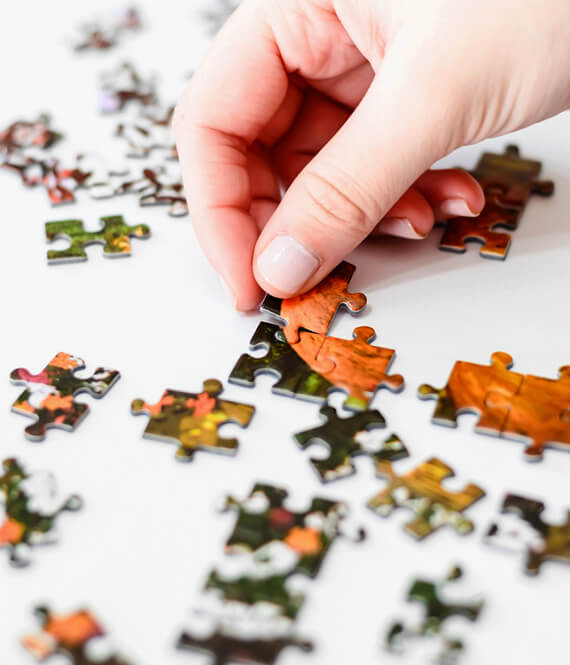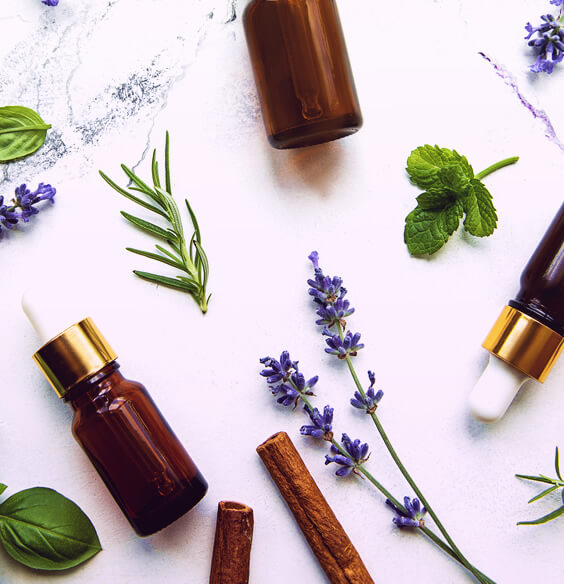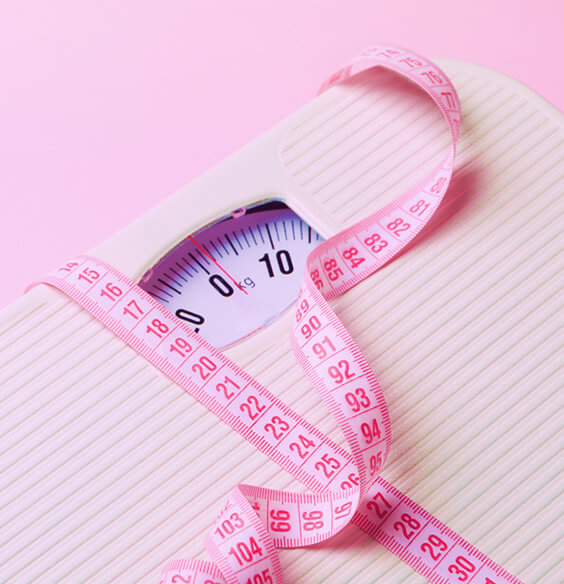
Do I Really Need 8 Hours Of Sleep?
We recommend helpful products in our articles. Read our full disclosure here. The content on this website is not intended to be a substitute for professional advice, diagnosis, or treatment.

Short answer, YES!
I know that you might be reading this like ‘nahh, I get 5 hours of sleep and I get by.’ That’s all well and good, except that we don’t want to just ‘get by’ from our sleep.
We want to THRIVE from our sleep!
And the studies are in.
We now know that we need 7-9 hours of sleep per night to thrive.
There is an incredibly small exception, with people who thrive from 5 hours of sleep or less, but before you go thinking you’re one of these rare humans, keep in mind that the percentage of people who can thrive off of 5 hours or less of sleep per night, rounded to a whole number, is 0% of the global population.
If you’re STILL feeling a resistance to this fact, then let’s consider what sleeping meant for the survival of our ancestors…
So Do We Really Need 8 Hours Of Sleep?
1. Sleeping is kinda risky…
When you think about it, sleeping is actually pretty risky when it comes to human survival.
Thinking back to when we were hunters and gatherers, while we’re asleep, we’re in the ultimate state of vulnerability, open to attacks and theft.
If mother nature required 7-9 hours of sleep back then, and throughout all of human evolution, that hasn’t changed, it’s safe to say sleep quantity is fairly important for human survival and evolution.
As humans, we have 3 instinctual roles: Survive, Thrive, Procreate.
Everything that we do and our motivation for doing so USED to be all about these three things.
Now, our lives are a bit more nuanced, our goals and aspirations go beyond simply surviving, thriving and procreating.
However, that doesn’t mean that our body’s natural instincts have changed.
Our instincts as the animals that we are, is still to survive and thrive.
The instinct of procreation seems to be present for some but not for all.
It’s possible that if the global population were smaller, we would feel the instinct for procreation more strongly.

2. Let’s consider human evolution for a moment.
Over the past millions of years, we have evolved into the humans that we are today.
We’ve grown taller, our brains have gotten bigger, our teeth have gotten smaller, our thumbs have become fully apposable…
And yet, throughout all of this physiological and biological evolution, our sleeping requirements have never changed.
The only thing that’s changed when it comes to our sleep, is our sleeping habits and patterns.
If mother nature has required humans and our human ancestors to sleep for between 7-9 hours for millions of years, I think it’s safe to say that there aren’t any sleep hacks or tricks that are going to make it possible for us to thrive on anything less than 7 hours per night (unless of course, you’re one of the 0.00000000000001% unicorns who can thrive off 5 hours of sleep or less per night)… Mother nature doesn’t play around when it comes to our ability to survive!
If looking at our sleep history doesn’t convince you, let’s look at some modern-day research.
3. The biggest sleep study the world has ever seen…
…was conducted in 2017 by neuroscientists from the Brain and Mind Institute at Western University in Canada. The sleep study involved over 44,000 participants worldwide.
Participants were required to track their sleep for 3 days.
They then underwent a series of tests, evaluating brain function and cognitive abilities.
The participants provided important information about their daily lives and habits, such as education levels and medications taken.
Participants were given an extensive questionnaire both before and after tracking their sleep.
One of the study co-authors, Adrian Owen, a professor at the institute who specializes in cognitive neuroscience and imaging said in a university interview “We really wanted to capture the sleeping habits of people across the entire globe.
Obviously, there have been many smaller sleep studies of people in laboratories but we wanted to find out what sleep is like in the real world.
How do real people sleep, how much sleep do they get, and what effect is it having on their brain.”
After the study was conducted, the researchers found that all humans are essentially created equal when it comes to sleep.
In the 44,000+ individuals that participated in the study, the optimal level of sleep was the same for everyone, no matter the age or sex of the individual.
Age also didn’t have an impact on levels of impairment from too much or too little sleep.
Lead author Conor Wild notes “We found that the optimum amount of sleep to keep your brain performing its best is between 7 to 8 hours every night and that corresponds to what the doctors will tell you you need to keep your body in tip-top shape, as well.
We also found that people who slept more than that amount were equally as impaired as those who slept too little.”

In the study, follow-up exams were given to participants to test their cognitive flexibility, verbal short-term memory, reasoning and attention span.
For participants who slept for no more than four hours, the impairments were pretty troubling.
The authors of the study say that those who slept no more than four hours completed the test as if they were about nine years older than their age.
Conor Wild explains “I think we’re all keenly aware when we don’t get enough sleep.
You can feel it in your body, you might feel that your brain is slightly foggy.
But what you might not realize is that some of our brain functions are more impaired than others. […] Our ability to solve some kind of complex, everyday problem like setting the timer on your coffeemaker or doing your taxes, you’re not going to be able to do that as effectively if you’re not getting enough sleep.”
So if the largest sleep study in the world found that we need between 7-8 hours of sleep, no more, no less, to survive and thrive, what do the guidelines say?
4. The National Sleep Foundation guidelines…
…indicate that healthy adults need between 7-9 hours of sleep per night.
Teens, young children, and babies need more than this to enable their growth and development.
If you have teenagers, this may not surprise you.
Especially during puberty, teens need to get as much sleep as their bodies need to support growth and development.
According to The National Sleep Foundation, these are the optimal sleep quantities across different ages:
- Newborns (0-3 months): 14-17 hours
- Infants (4-11 months): 12-15 hours
- Toddlers (1-2 years): 11-14 hours
- Preschoolers (3-5 years): 10-13 hours
- School-age (6-13 years): 9-11 hours
- Teens (14-17 years): 8-10 hours
- Young Adults (18-25 years): 7-9 hours
- Adults (26-64 years): 7-9 hours
- Older Adults (65 or more years): 7-8 hours
If we take these guidelines as our base, this is a good start.
However, as we’ve just noted, we require different amounts of sleep at different stages of life.
It’s also worth noting that we need more sleep while we are recovering physically and mentally.
If we’re an athlete who is in the middle of the training season, we’ll require more sleep so that our body can sufficiently recover.
If we’re going through treatment for a mental health disorder, we’ll require more sleep so that our brain (and body) can sufficiently recover.
Sleep expert and neuroscientist Matthew Walker said in an interview with Joe Rogan “Sleep is the best, most underused mental and physical performance enhancer out there.” He went on to explain that while we are asleep, our short-term memory is converted to long-term memory.
Muscle memory becomes stronger through enough quality sleep, resulting in performance enhancements for athletes, musicians essentially for all of us!
If you play an instrument, you can try it out for yourself!
Learn a song that exceeds your ability.
Notice the improvement from day to day in the ease of playing.
You’ll notice that when you get enough quality sleep, from one day to the next, the fluidity and ease of practice will improve.
This is because our brain is revising the song while we’re fast asleep!
So we know how much sleep we need, but overall, we don’t seem to get enough these days.
Why don’t we sleep enough?
5. The Evolution of our Sleep Habits
We used to sleep because of pure necessity and instinct.
Nowadays, our sleeping patterns and habits are dictated by our lifestyle.
We sleep less and less because of stress, screens, mental and physical illness, poor nutrition, insomnia, anxiety, drugs, parties, shift-work, alcohol… there is so much that stops us from getting enough quality sleep in the modern-day world.
Now isn’t the only moment in our human history where our sleeping habits have been a bit questionable.
The Renaissance period, known for its art and societal advances, experienced a bit of a sleep revolution for a brief moment in our human history.
A strange sleeping habit became a societal norm.
Civilians would have a first and second sleep period during the night, with a waking segment in between.
During this waking time, people would pray, reflect, procreate, do chores, read, and visit friends.
This sleeping pattern didn’t last for very long.
As we entered into the Industrial Revolution, long working days and regimented factory schedules meant that people could no longer have a waking period throughout the night.
By the 1920s, we were no longer enjoying a segmented sleep schedule and went back to our regular single sleep cycle.
It’s safe to say that when it comes to our sleep, societal habits definitely impact our overall sleep quantity and quality.
It’s worth keeping this in mind when evaluating your own sleep routine…

6. Building a Sleep Routine can help us sleep more!
This may sound oddly simplistic, but if you would like to improve your sleep, developing a sleep routine has been proven to be an effective method.
Your sleep routine needs to be built to suit you and your lifestyle.
There is no one-size-fits-all when it comes to our sleep habits.
If you’re a shift worker for example, falling asleep and waking up at the same time may not be possible.
If we have anxiety, we may need to implement some symptom-relieving practices into our sleep routine, like deep breathing exercises or symptom-management techniques.
If we’re struggling with falling asleep, we might want to consider putting away screens an hour before bed.
When developing a sleep routine, be sure to implement small changes, one at a time.
Once we’re confident that one sleep habit is consistently achievable, we can add one more small change until it turns into an automatic habit.
Then we can add another small change, and so on.
If we try to implement a change that we don’t follow through with, make it a smaller, more achievable change until you’re able to consistently do it.
Take-Aways
It’s safe to assume that you need 7-9 hours of sleep per night, unless you’re an infant reading this, in which case, that’s pretty impressive and you probably deserve a Nobel prize or something!
Our sleeping habits are influenced by societal norms and our own, personal lifestyle choices.
If you need more sleep, it’s a good idea to create a sleep routine that you can work on improving over time.
It needs to fit effortlessly into your life so that the changes stick.
If you’re concerned about the quality and quantity of your sleep, be sure to speak with your healthcare provider.
Like this topic?
Scroll down for more!
"We love to research problems, examine studies, analyze solutions, and share with you ideas that make life healthier. You can learn about us and our editorial standards here. Have suggestions or feedback to share? Send us a message!."













Leave a Comment